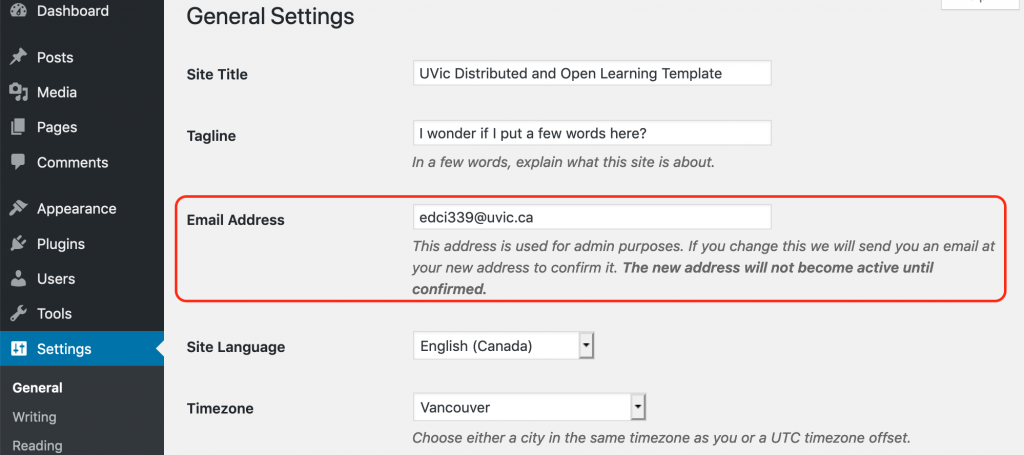
Data privacy: the impactful conflicts between Data and Privacy
With today’s advanced technology, user data collection and analyze has become a huge factor in marketing. Companies are using data to target their potential customers, using data to design their advertisement, and using data to improve their products. It is fair to say that data has become the most important resource in the economy. On the opposite side of collecting and analyzing data, there is privacy. The old version of privacy laws is not suitable for today’s technology, more and more countries and organizations have made some changes to their privacy laws or making new laws. The collection of data and the protection of privacy is one of the most impactful conflicts in this era, and this conflict is pushing the competition of marketing on to next level. How does the conflict between data and privacy affect marketing and people’s daily life and how to protect your privacy better in this era are the two questions people should pay attention to. In this post, I will be reviewing several articles and trying to find out the answer to those two questions. Hopefully, by the end of this post, we will have a new perspective on data privacy and learn how to protect our privacy better.
The first article is by Kelly D. Martin and Patrick E. Murphy in 2016, the authors state a lot of facts and data in their research article “The role of data privacy in marketing”. The first part of the article is about the impact of data and analytics to marketing. The authors point out their main theme of the article in the first part: “Our research motivation derives from observations that generally show that marketing practice using consumer data and analytics has advanced at a more rapid pace than has marketing academic scholarship. Specifically, we argue that in reality, the meaningful questions have shifted from whether consumers are willing to disclose their private information to how consumers react now that their private information is widely accessible and available to a host of marketers and other interested parties. (Martin & Murphy, 2016)”. According to Martin and Murphy, they think people’s opinion and understanding of the word “privacy” has changed, people now are more concerned about what other people will do to their personal information than leaking their personal information. The author addressed their core questions of the article at the end of the introduction, how does privacy’s concept change over the years, how to develop a new way to understand privacy in marketing, and they provide some suggestions for future research (Martin & Murphy, 2016). In the main body of the article, the authors spend a lot of time explaining and defining the different concept of privacy in the modern age. Besides, the authors use a lot of tables and charts to help readers understand the concept better. After listing and explaining the concept and impact of data privacy in marketing, Martin and Murphy conclude their article by stating their findings. Although the concept of privacy has changed, “By synthesizing privacy across these areas, we advocate for a holistic way of thinking about organizational use of consumer data, and how this fit into a bigger societal picture. (Martin & Murphy, 2016)”.
The second article by Jim Isaak and Mina J. Hanna talked about why people should be worried about their private information. The article is about Facebook gave users’ personally identifiable information to a data firm named Cambridge Analytica, and how this story concerns people. The authors point out that “It is clear that national governance institutions demonstrably lack the ability to anticipate technology’s future impact on the rights and duties of its citizens, much less its impact on the structure of society, ideological divides, and political schisms among its citizens and the expansion of identity politics promoted by isolated social and news media echo chambers. (Isaak & Hanna, 2018)”. Also, this incident causes a huge debate about technology’s impact and the risks for people’s privacy. The authors first explain some of the backgrounds about personal data online and Cambridge Analytica, and they point out that Facebook is a resource for personal data, but it is not the only one. With today’s technology, it is very easy to find out about a person’s personal information, and people must pay attention to their privacy online. Public Transparency, Disclosure for Users, Control, and Notification are the four principles the authors think are the most important (Isaak & Hanna, 2018). In other words, people should know what type of data has been collecting and why people should know if their data is being collected, people should have control over the collection of their data, and people should know why and where their data will be used. At last, the authors list some of the regulation that has been used or has been purposed regarding personal data online. Comparing to the first article, this article focused more on regulating the collection of personal data and what people should do to protect themselves. Also, this article is more realistic about the problems caused by advanced internet technologies and point out that people should be able to protect their privacy.
The third article is a study done by Kelly D. Martin, Abhishek Borah, and Robert W. Palmatier in 2017. Unlike the previous two articles, this article does not spend a lot of time explaining what data privacy is, instead, does a mathematical study on how data privacy affect the economy. First, the author points out the effect of data privacy can go two different directions, positive effects, and negative effects. In detail, the authors named the Gossip Theory as to why there will be a negative effect when collecting customer’s data. Gossip theory states: “Customers’ psychological and behavioral responses to feelings of vulnerability can be informed by gossip theory, considering the common notion of unsanctioned transmissions of personal information about a vulnerable third party. (Martin, Borah, and Plamatier, 2017)”. After briefly explaining the concept of their study, the authors go ahead and list all the model and formulas they will be using. To make sure the result will be accurate, they designed three different real cases to study, and post all their data in the article. In the result section, the author said that the outcome of the three cases is very different. In case one and two, which the companies do not provide control and transparency of data to their customers, the negative effects of collecting customers’ data outweigh the positive effects. On the other hand, in the third case, where companies offered control and transparency of data, the companies are benefitting by collecting customers’ data (Martin, Borah, and Plamatier, 2017). It is obvious that people nowadays have a sense of protecting their privacy, and it is very important that the firms respect that and let people know why their data is being collected and what will it be used for. At the end of the article, the authors state that their result is based on a short period, and they encourage future research to study the effect of privacy data in a longer period.
All three articles are very specific and have different angles regarding the issue of privacy data. The first article points out the concept of privacy is different from what it used to be. The second article discusses a true case where data and privacy are in conflict and lists some ways to protect people’s privacy. The third article is trying to solve the effects of data privacy on the economy on the mathematical level. With the light of there articles, my questions, in the beginning, have been answered. Data privacy have both positive and negative effects on the economy. Besides, people already have a sense of protecting their privacy, however, people should learn to protect their data better on the internet. In my opinion, people must know why and where their data will be collected, and people should know what their data will be used for. Just like the previous post I did on Turnitin, companies and firms should do a better job at transparency and customers should do a better job at knowing what the companies’ policy is. Overall, technology is changing our lives, it is time that our laws and mindset keep up with the changes. If open learning and open resources are the way to go in the future, data privacy will become the biggest issue in people’s daily life.
In conclusion, with today’s technology, people should be more careful about their private information. The collection of customers’ data should be transparent, and the customer should be informed if their data will be collected. Advanced technology allows us to do things beyond our imagination, however, it also causes a lot of new problems. Laws and regulations must follow up with the newest technology. I believe that open resources will be a huge part of our future, and we must know what data privacy is and how to protect it.
References:
- Isaak, J., & Hanna, M. J. (2018). User data privacy: Facebook, Cambridge Analytica, and privacy protection. Computer, 51(8), 56-59. DOI:10.1109/MC.2018.3191268
- Martin, K. D., & Murphy, P. E. (2017). The role of data privacy in marketing. Journal of the Academy of Marketing Science, 45(2), 135-155. DOI:10.1007/s11747-016-0495-4
- Martin, K. D., Borah, A., & Palmatier, R. W. (2017). Data privacy: Effects on customer and firm performance. Journal of Marketing, 81(1), 36-58. DOI:10.1509/jm.15.0497
Picture:
10 Tips to Protect Your Business and Customers on Data Privacy Day By Daryl Nerl
Retrieved from https://smallbiztrends.com/2017/01/data-protection-tips-for-data-privacy-day-2017.html




